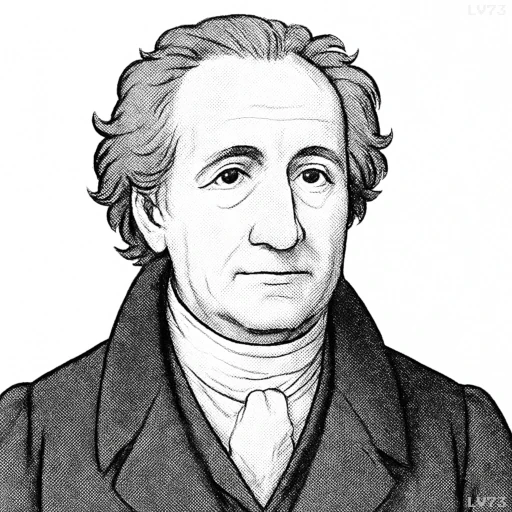“The man who occupies the first place seldom plays the principal part.”

- August 28, 1749 – March 22, 1832
- German
- Poet, playwright, novelist, philosopher, politician
table of contents
Quote
“The man who occupies the first place seldom plays the principal part.”
Explanation
Goethe suggests that those who hold positions of power or authority—the ones in the limelight or the first place—are not always the ones who make the most significant contributions or have the most substantial influence. The true driving forces behind important decisions or actions are often those who work behind the scenes, guiding the direction and shaping the outcomes without necessarily seeking the spotlight. The individual in the forefront might receive recognition, but it is often the collaboration, support, and insight of others that ultimately determine success. This speaks to the idea that leadership and impact are not always defined by titles or public roles, but by substantial contributions made in quieter, more unseen ways.
Historically, this idea aligns with Goethe’s understanding of power and influence. He recognized that in many situations, the public figure or leader might appear to be the most important, but true influence often comes from those who work with dedication and wisdom in less visible roles. Goethe’s time, like many before it, placed importance on the idea of servant leadership and the notion that the most important work is often done without seeking personal glory.
In modern contexts, this idea applies to organizations, governments, and even families. For example, in a business, the CEO may occupy the “first place,” but it is often the team of supporting members—from senior executives to lower-level employees—that drives innovation and success. In politics, the public figures often in the spotlight may owe their achievements to the collaborative efforts of advisors, strategists, or activists who play a much less visible, but crucial, role.
Goethe’s words remind us that the true leaders or influential figures are not always those who take center stage. Often, the principal parts are played by those who work quietly, shaping outcomes with their knowledge, effort, and commitment, even if they do not receive the public recognition for their roles. True impact is often about the collective effort and contributions from those working together behind the scenes.
Would you like to share your impressions or related stories about this quote in the comments section?



